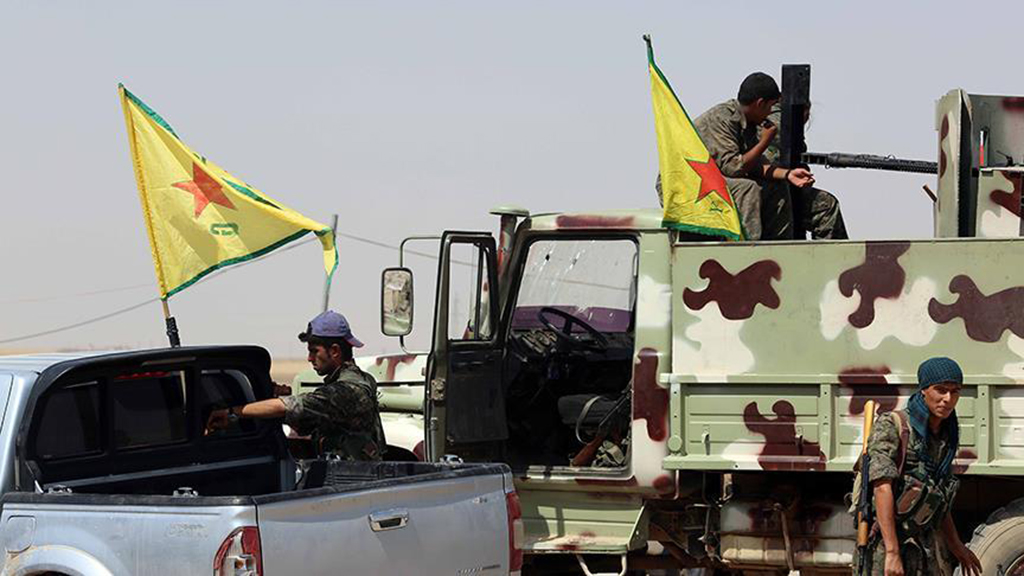n the anarchical world order, national actors rely on self-help mechanisms and strive to maximize their relative gains, which in turn triggers fierce international competition in a multiplicity of areas. Therefore, it is vital that a hegemonic power with sufficient power capacities enters the scene by providing common goods required for peace and stability, engaging in conflict resolution and supporting economic integration and wealth creation within the confines of a liberal international system. This much was assumed by the U.S.-patented theory of hegemonic stability advocated by proponents of the realist approach to international political economy in academia and policy circles.
Accordingly, peace, stability and predictability in the international political and economic realms were conceived for a long time as the natural outcome of undisputed hegemony by one single dominant global power. The Pax Brittanica of the 19th century when Great Britain ensured the maintenance of global power balances and fluency of the international trading system as a global banker, security force and conflict resolver was cited as an example. Post-war U.S. hegemony was also given as another major example reflecting political and economic stability on a global scale thanks to a U.S.-led governance architecture formed around the U.N. system and the Bretton Woods institutions. The formation of regional cooperation and economic integration models such as NAFTA and the EU were also depicted as useful adjuncts for this hegemonic stability, facilitating burden sharing among the leading actors. So, given the recent turmoil, volatility and chaotic developments in both global and regional politico-economic systems, where do we stand in terms of this one-sided hegemonic stability rhetoric? The answer to this critical question does not promote optimism concerning future developments.
To start with, the strategic orientation of the U.S. under Donald Trump’s presidency displays an increasingly inward-looking structure and a reluctance to carry the burden of global public goods. Hence, the provision of security, stability, alliance networks, regional leadership, conflict resolution and trade facilitation are not regarded as vital strategic priorities. Increasingly populist political messages coming from Washington seem to cater to economic protectionism, restrictions on human movements, withdrawal from international and regional alliances and a preference for bilateral power politics. More importantly, American foreign policy is acquiring a problematic character whereby regional crises in the Middle East and elsewhere are fueled and exacerbated rather than resolved to increase policy effectiveness amid chaos.
The escalation of the nuclear issue with Iran, the unveiling of the Gulf crisis with Qatar, the crisis with Turkey over the support for the Democratic Union Party (PYD) in Syria and the alleged involvement in domestic power struggles in Saudi Arabia were all indications of this tendency. Trump’s family-based governing style supports unconventional alliances with local figures, individuals and paramilitary groups in order to escalate existing regional conflicts and create new ones while trying to acquire public and private benefits from conflict-ridden situations.
The recent example of the politically motivated trial in the U.S. of Halkbank Deputy General Manager Mehmet Hakan Atilla on the false charge of breaching U.S. trade sanctions on Iran also illustrates this tendency. The American establishment openly tries to raise tensions with Ankara by utilizing the court case as leverage against the Justice and Development Party (AK Party) government and President Recep Tayyip Erdoğan in an attempt to influence domestic political processes in Turkey and extract diplomatic concessions in return. The U.S. does not play the global game like a benevolent hegemon seeking stability and tranquility, but like a tough bully utilizing all sorts of military, diplomatic, judicial, economic and Mafioso instruments to maximize its gains in tense situations.
But then, the decision-making apparatus in the U.S. is unprecedentedly fragmented and conflicts of interest in critical issues are rife between the White House (Trump and family), the Pentagon, CIA and State Department. That is why we could hear Trump promising directly Erdoğan to cut all forms of military support to the PYD’s People’s Protection Units (YPG) militia while the Pentagon makes a contradicting statement of continued support just days later. Hegemons do not normally act like this.
Putting aside the discriminatory and xenophobic rhetoric of Trump displaying the worst examples of far-right populism, the current tendencies of the U.S. to escalate political crises, mingle with violent conflicts and trigger economic protectionism confirms that the age of benevolent global hegemons is well and truly over.
[Daily Sabah, 2 December 2017]
In this article
- Opinion
- 2017
- Arabian peninsula
- Britain
- Daily Sabah
- Democratic Union Party (PYD)
- Donald Trump
- European Union (EU)
- Far-Right
- Global Actors | Local Actors
- Global Power
- gulf
- Halkbank
- Islamic Republic of Iran
- Middle East
- NAFTA
- NATO
- People's Protection Units (YPG)
- PKK - YPG - SDF - PYD - YPJ - SDG - HBDH - HPG - KCK - PJAK - TAK - YBŞ
- Qatar
- Recep Tayyip Erdoğan
- Sanctions
- Saudi Arabia
- Syria
- Syrian Civil War
- Syrian Conflict
- Syrian Crisis
- The President of the Republic of Türkiye
- Turkish Foreign Policy
- Turkish President
- Turkish-American Relations
- Türkiye-US Relations
- Türkiye's Foreign Policy
- Türkiye's Justice and Development Party | AK Party (AK Parti)
- U.N.
- UK
- United Kingdom (UK)
- United Nations (UN)
- United States (US)
- US Sanctions
- US-Terror Relations
